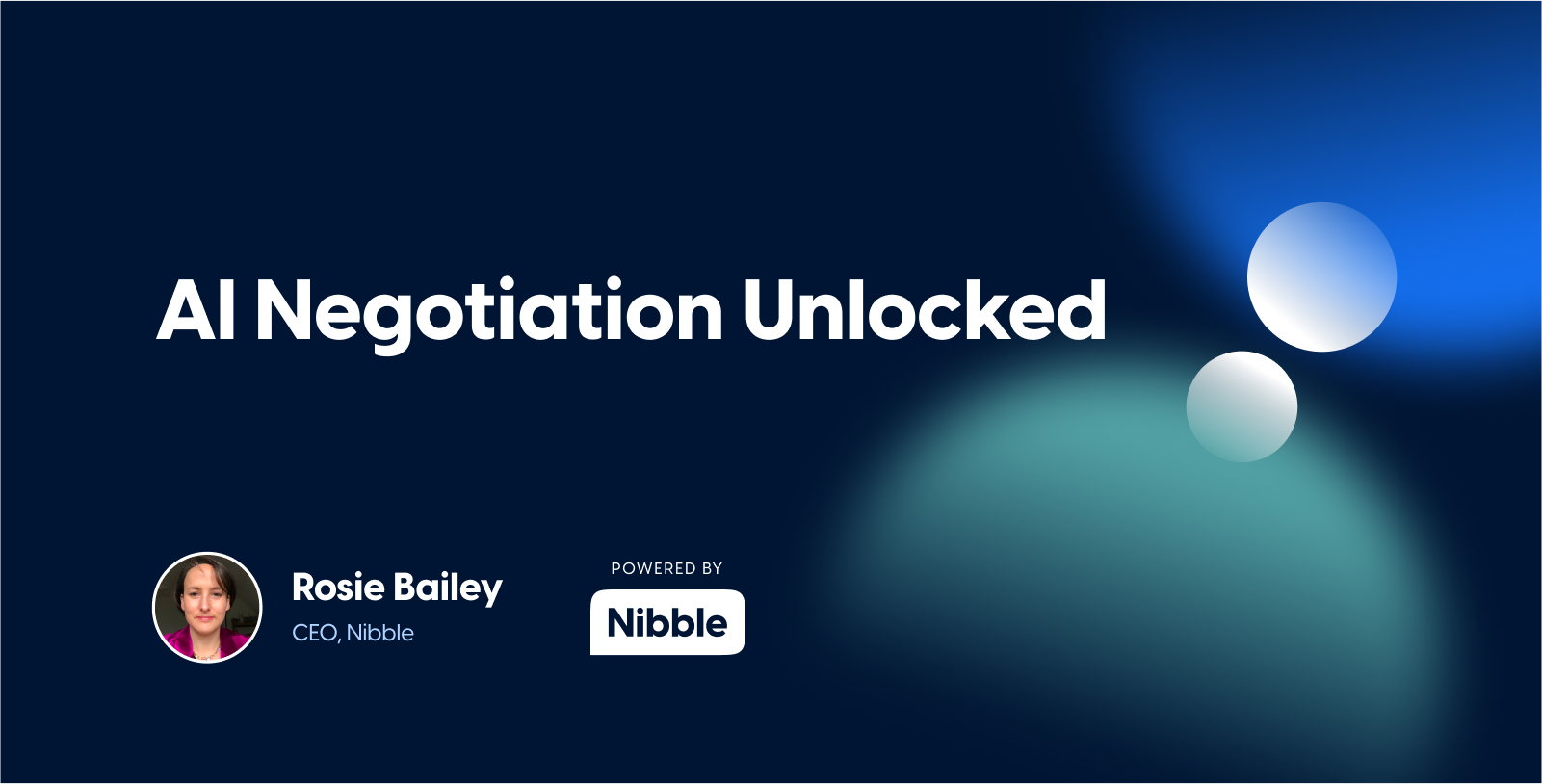
The knee-jerk concern with automation is that it will strip out the human touch. If machines are negotiating with my suppliers, doesn’t that make the relationship colder? The reality is almost the opposite.
AI negotiation — when deployed thoughtfully — can actually improve the supplier experience. By reducing friction, ensuring fairness, and giving long-overlooked suppliers a real seat at the table, autonomous negotiation helps procurement teams build stronger, more sustainable relationships. Far from replacing human connections, it supports them.
The Relationship Problem in Traditional Negotiation
Most procurement leaders know the feeling: too many suppliers, not enough time. The result is that supplier interactions tend to bifurcate into two extremes:
-
Smaller suppliers are often neglected. They may be handed “take it or leave it” terms, or contracts are auto-renewed with no negotiation at all. Over time, these suppliers can feel overlooked, undervalued, and disengaged.
-
Larger suppliers face the opposite problem. They are pulled into long cycles of back-and-forth emails, slow approvals, and prolonged haggling over details. Weeks can pass before agreements are finalized, frustrating both sides and slowing down business.
Neither dynamic is healthy. Procurement teams burn time they don’t have, and suppliers — both large and small — walk away with a diminished experience.
According to a recent McKinsey study, more than 60% of suppliers say speed and clarity of negotiations directly affect their willingness to collaborate long-term. Yet speed and clarity are exactly what traditional procurement processes struggle to deliver.
How AI Negotiation Helps Suppliers
AI negotiation tools directly address these frustrations, not only for buyers but for suppliers as well.
-
Speed & Clarity
Autonomous negotiation agents respond instantly. Suppliers don’t have to wait days or weeks for a reply — a typical negotiation can be completed in minutes. Decisions are also transparent and consistent, based on pre-defined rules and data inputs, so suppliers understand the logic behind every counteroffer. -
Fairness
One of the biggest supplier complaints in traditional negotiations is inconsistency. A discount granted in one category or region may be denied elsewhere, leaving suppliers feeling like outcomes depend on “who you know” or who happens to be negotiating that day. AI avoids this. By applying data and rules evenly, suppliers encounter a fairer, more predictable process. -
Inclusivity
Perhaps the most overlooked benefit: AI negotiation ensures that all suppliers get a genuine negotiation, even those in the long tail. Instead of being ignored or rubber-stamped, smaller vendors are engaged in a dialogue, with opportunities to offer concessions or request terms. This inclusivity levels the playing field, signaling to every supplier that their business matters.
Illustrative Examples of AI Negotiation
Real-world pilots highlight the supplier benefits of AI negotiation.
-
Faster cycle times: One multinational used AI negotiators for routine contract renewals. The average negotiation time dropped from three weeks to less than 48 hours. Suppliers appreciated the responsiveness, reporting higher satisfaction scores in post-deal surveys.
-
Tail supplier engagement: In another case, an enterprise used autonomous negotiation to tackle its neglected tail spend. Hundreds of small suppliers — many of whom had never had a negotiation before — were suddenly given the chance to discuss terms. For those suppliers, the process was empowering: they could finally propose trade-offs (e.g., better pricing for longer commitments) instead of passively accepting outdated contracts.
According to Deloitte, organizations that engage their full supplier base see 26% higher supplier satisfaction scores than those that only focus on top-tier vendors. AI negotiation makes that level of engagement feasible at scale.
The Strategic Impact of Autonomous Negotiation
The supplier benefits translate directly into strategic advantage for procurement leaders:
-
Stronger trust and goodwill: When suppliers feel heard, they are more likely to invest in the relationship — whether through improved service, better pricing, or preferential treatment during capacity constraints.
-
More win-win outcomes: AI negotiators don’t just push for price. They explore trade-offs across multiple levers (payment terms, volume commitments, delivery schedules), unlocking deals that work for both sides.
-
Sustainable partnerships: Long-term supplier relationships thrive on fairness, transparency, and consistent engagement. By systematizing these principles, AI negotiation creates a foundation for partnerships that endure, rather than transactional one-offs.
AI Negotiations offers procurement teams support, not replacement
It’s important to underscore that AI negotiation doesn’t replace human supplier relationships. No digital agent can replicate the nuance, empathy, and creativity of a seasoned category manager managing a strategic supplier.
What AI negotiation does is clear the backlog of routine deals and elevate the supplier experience in those interactions. That frees human negotiators to focus on the relationships where personal touch matters most — the big, strategic partnerships.
In other words: automation doesn’t make procurement less human. It makes it more human, by giving suppliers fairer, faster, more consistent experiences while freeing procurement professionals to do what they do best — building trust, fostering innovation, and driving long-term value.
Find out more from Nibble’s experience negotiating 100,000 times a month here.
Interested in Nibble?
